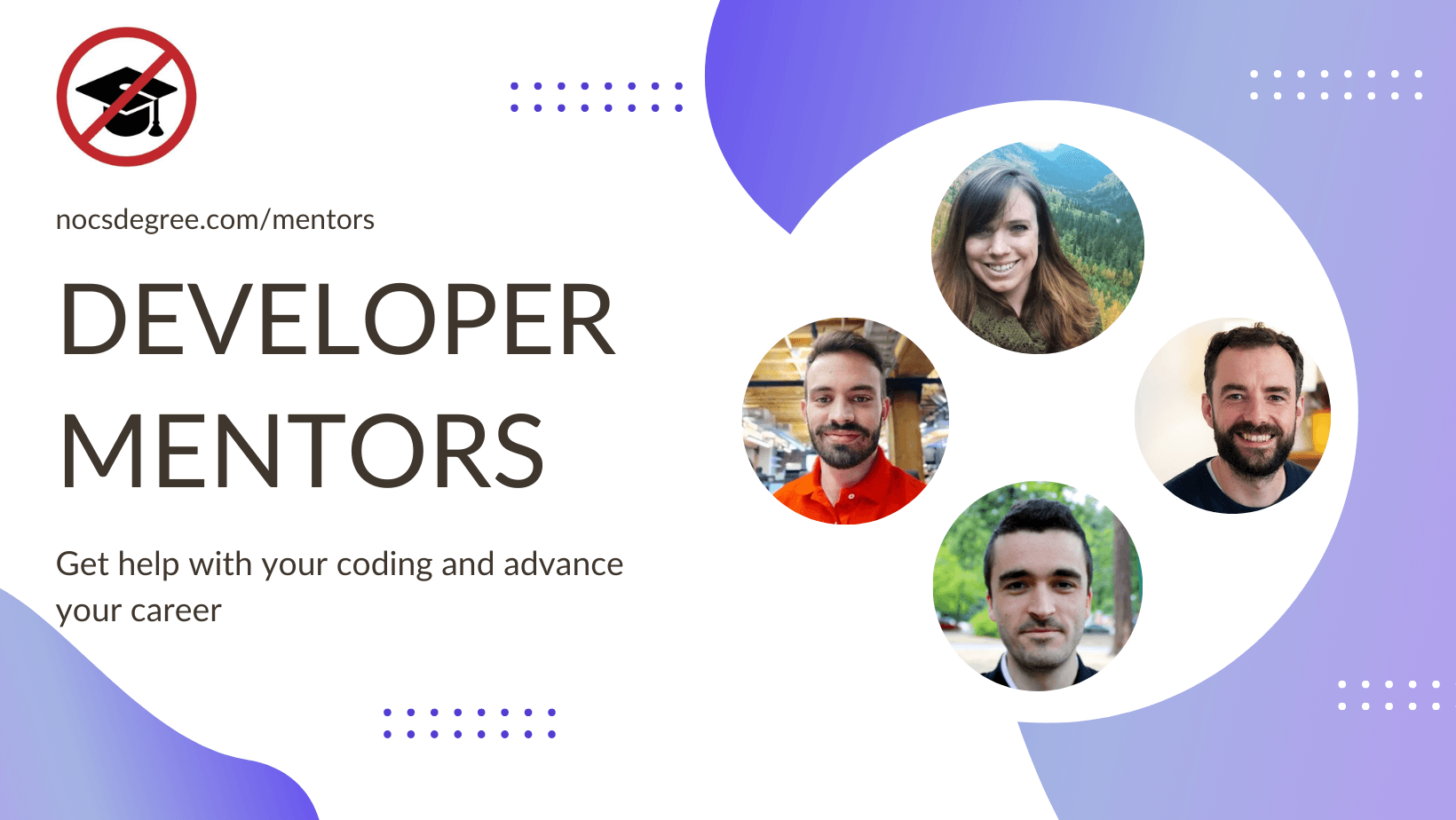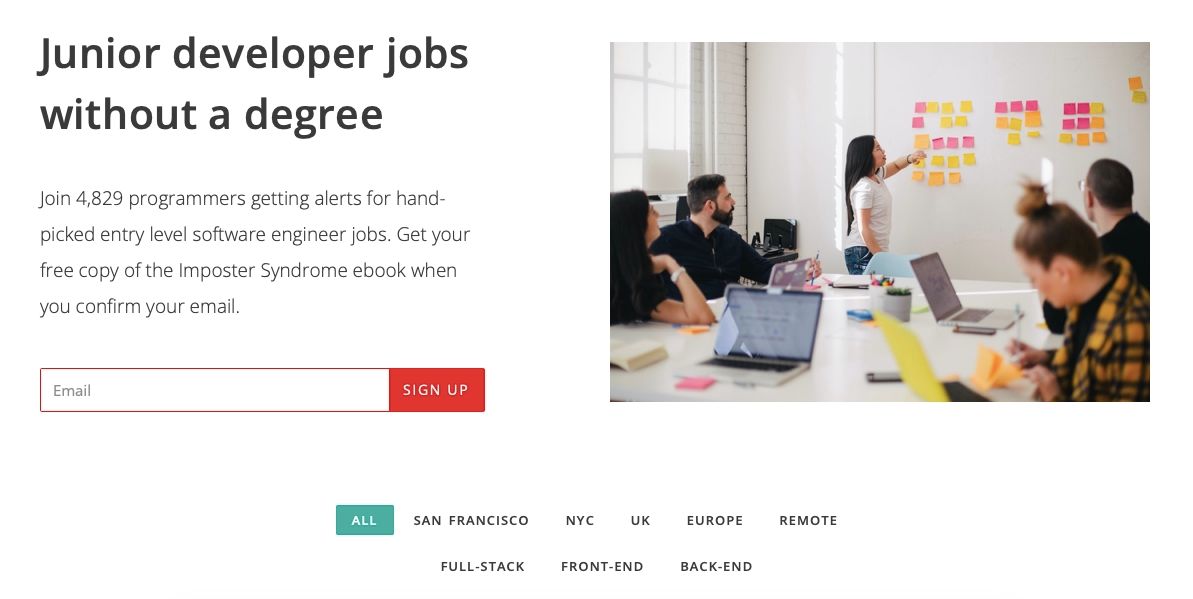Laura has a degree in Psychology and Biology but decided she wanted a change of career and became a Software Engineer without a CS degree. In this interview Laura sets out the advantages of coding bootcamps, what her first interview was like and her tips for learning to code without going to college.
Hey, so can you introduce yourself?
Hi, I’m Laura! I’m a Software Engineer at a Boston-based company called Jellyfish. I’m currently working remotely and living in New York City.
Before I became a developer, I had a couple of big career changes. I worked as a Mediator at the Minnesota Attorney General’s Office, then as an Ophthalmic Technician at Massachusetts Eye and Ear Infirmary. In college, I studied psychology and biology.
Why did you learn to code?
I learned to code because I wanted a career with more flexibility. I have family all over the US and I also love to travel so I wanted to be able to work from different places and not have to depend on limited vacation days. I also like the type of problem-solving that’s involved in coding and the tech community. I’ve met so many driven and amazing engineers at tech events and conferences which has been super motivating to me.
How did you learn coding?
I tested the waters by attending Railsbridge Boston which is a free workshop on Ruby, Ruby on Rails, and other web technologies. They focus on increasing diversity in tech, so that people of all backgrounds can feel welcome and comfortable in the tech industry.
At the workshop, I met volunteers who had graduated from a local bootcamp, Launch Academy, and I ended up going there myself. Meetups were also a great resource for networking and learning about technical topics. Some of the ones I attended in Boston were Women Who Code Boston and ReactJS Boston.
If I did it all over again, I would still choose to go to a bootcamp. The focused curriculum, dedicated teachers, collaboration with classmates, and networking with the tech community was all really helpful. Being surrounded by people who are all focused on learning the same things was a bonding experience and I made some amazing friends from it.
How has your life changed since learning to code?
One of the biggest changes since I learned to code is that I work remotely now! Jellyfish was supportive when I brought up wanting to make the move to New York and now we have a growing NYC cohort. Other than that, my compensation has more than doubled since my earlier careers and I’ve had a much easier time finding job opportunities for this skillset.
Some changes that I didn’t quite expect when I learned to code but value a lot now include feeling more agency over my work and having more opportunities for developing leadership skills.
What does a typical day as a software developer at Jellyfish look like for you?
A day typically includes a morning standup with the team so we can synchronize about what we’re working on and any blockers we might be facing. I'll then work on a ticket and will sometimes pair-program with a coworker to share context and get another perspective to solve a problem. Our stack is Django on the backend and React on the frontend with libraries like TypeScript, React Query, and Ant Design.
Other things that I might do throughout the day include reviewing pull requests and plan or groom upcoming work. I’ll also have meetings that are engineering wide, frontend specific, one-on-ones, and interviewing candidates.
What was the interview process like for your first developer job?
I had a small portfolio with things like my bootcamp capstone project, bootcamp group project, and a small side project.
The interview consisted of a few sessions with different interviewers. The first was a white-boarding session where I was asked to construct functions. I did some pseudo coding at first but then actually wrote and executed the code in a sandbox.
The second was a coding session where I was given an api and asked to build a frontend interface to display and manipulate that data. I got to choose what language and framework to use and built the frontend UI to handle user interactions.
The third was an informal lunch where I got to meet more of the team, get a feel for the culture, and ask any remaining questions I had about the company and the role.
Did you ever have imposter syndrome?
I had impostor syndrome a ton during my first few years as a developer. I still do sometimes. Something that has helped me is learning to recognize when I have it and reminding myself that I’m learning and the expectation that I should know something is largely coming from myself.
What are your career goals for the future?
I don’t have a specific career track in mind yet, but my shorter-term career goals are developing more technical and organizational leadership skills. One of the things I’m doing to learn those skills is leading engineering projects.
I recently led a large project to convert the frontend of our application from Django templates to React and Ant Design. It was a big effort that involved different teams so I got a lot of experience in staying organized, communicating throughout the company, and facilitating discussions about strategies and blockers.




